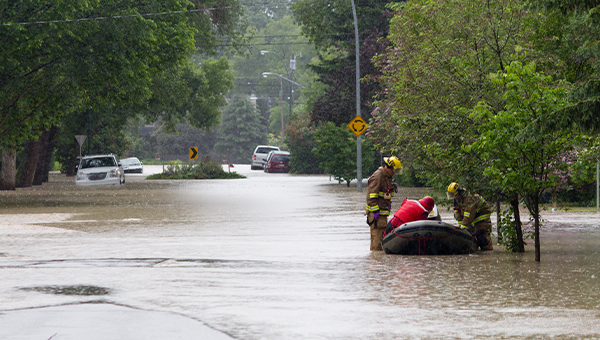
|
||||
|
In this Update:
PA’s Credit Rating Upgraded Because of Strong Budget Reserves
Pennsylvania received yet another upgrade to its credit rating because of strong budget reserves and prudent financial management of Senate Republicans. Moody’s Investor Services raised the rating to Aa2. The announcement was the fourth significant upgrade to the state’s financial outlook in the past 13 months. Previous upgrades helped Pennsylvania and its taxpayers save nearly $100 million during the December 2023 bond sale. Senate Republicans have been dedicated to building the state’s Rainy Day Fund, allocating nearly $740 million more in this year’s budget – bringing the total balance to more than $7 billion. Above the national average, the fund directly influenced the rating upgrades. Enhancing Broadband Access in Charleroi
The Pennsylvania Broadband Development Authority (PBDA) this week announced that the Charleroi Area Public Library has been awarded nearly $594,000 in grant funding to bolster internet access within the community. The funding will be used for the library’s “Renovate, Elevate and Adapt for Tomorrow” (REACT) project. The project is designed to enhance the library’s infrastructure and services, ensuring it meets the evolving needs of the community. The grant, funded through the federally backed Multi-Purpose Community Facilities Program, is part of a $45 million competitively awarded initiative to support projects that bolster high-speed broadband access for essential services, including work, education, and health monitoring, using community anchor institutions. Improving internet access in schools, libraries, recreation centers and non-profit organizations, this investment ensures that these facilities remain critical hubs for public benefit. To maintain transparency and ensure measurable progress, the PBDA requires grantees to submit quarterly and annual reports detailing the project’s advancement, and compliance with federal standards. A final report, due within three months of project completion, will outline the full impact of the grant, including outcomes, sustainability efforts and equity considerations. The final 10% of funding will only be released after a thorough review of this report. My First Responder PTSI Bill Passes SenateThis week the Pennsylvania Senate passed my legislation, Senate Bill 365 (a companion bill to House Bill 1632 – Representative Jennifer O’Mara), which will change the standard that a first responder must meet in order to establish a workers’ compensation claim for a post-traumatic stress injury (PTSI). Earlier this year in Harrisburg and with sheer gratitude, I joined state first responder organizations to advocate for the mental health of the heroes we depend on every single day. One of the speakers was Captain Tim Leech, Pittsburgh Bureau of Fire and Vice President of Pittsburgh Fire Fighters IAFF Local 1, who shared the heartbreaking story of a Pittsburgh firefighter who without hesitation ran back into a burning building to help others save an elderly person. The young man was then trapped and made the life-saving decision to jump out of a second story window. This left him with physical rehabilitation but when he returned to the job, he faced mental scars that he struggled to overcome and filed a workers compensation claim. That claim was denied. Watch my floor remarks from this week by clicking the image above. Supporting our Retired TeachersSince taking office, I have greatly valued education, have supported teachers and strongly believe it’s long over-due for retired teachers to receive a cost-of-living adjustment (COLA). Our state’s two public pension systems, the State Employee Retirement System (SERS) and the Public School Employee Retirement System (PSERS), have been providing payments to retirees for decades, but neither system has seen a COLA in over 20 years. This week in Harrisburg, I stood with union members, retired school employees and retired state workers to advocate for passing House Bill 1416. Our retired educators should be valued for the work they have done to educate our future generations. It is time we give them what they deserve. Celebrating America’s 250th BirthdayTuesday was America250PA Day in Greene County. The day started at Carmichaels Elementary and my staff joined Mrs. Mitchell’s 1st Grade Class in reading the story, “K is for Keystone.” Following the reading program, guests gathered with Executive Director Cassandra Coleman and Greene County Commissioner Jared Edgreen for a Liberty Tree planting at the Greene County Veterans Memorial Park. There will be one Liberty Tree planted in all 67 counties of Pennsylvania by 2026 when the United States of America turns 250 years old. On Wednesday, my staff attended a presentation by the Washington County Chamber of Commerce that announced a partnership with the Pennsylvania Commission for the United States Semiquincentennial’s (America250PA) Bells Across PA campaign to commemorate the adoption of the Declaration of Independence in 1776. Washington County’s fiberglass replica of the Liberty Bell will debut at the Canonsburg 4th of July Parade and then will be on permanent display at the Washington County Historical Society Education & Research Center. Free REAL ID Seminar this Friday in McDonaldI am partnering with the Pennsylvania Department of Transportation (PennDOT) to host a free REAL ID Seminar for residents on Friday, October 18, from 1-3 p.m. at Heritage Public Library, 52 Fourth Street, McDonald. PennDOT representatives will explain the federal ID requirements, how and where to apply, and the documents needed to obtain a Pennsylvania REAL ID. They will also share how to know if the identification is needed. The process of obtaining a REAL ID can be confusing, and my goal is to make it as simple as possible for everyone by providing an opportunity to hear from the experts and ask any lingering questions. This can help to prevent people spending time at the DMV only to find out the documents they have are insufficient. Beginning May 7, 2025, a REAL ID will be necessary to fly and enter a federal building or military base. Legislation to Combat AI-Generated Deepfake Images of Minors in PA Set for Enactment
Legislation to combat “deepfake” images of minors and child sexual abuse materials generated by artificial intelligence (AI) received final legislative approval and is set for enactment into law. Senate Bill 1213 addresses the alarming rise in AI-generated deepfake sexual images of children and non-consenting adults. Currently, Pennsylvania law makes it illegal to share intimate images without consent but does not clearly address the use of AI deepfake technology for this purpose. This gap in our law leaves many vulnerable to a new form of digital abuse. The bill also prohibits AI from being utilized to generate child sexual abuse material, previously referred to as “child pornography,” which is not currently prohibited under law. In August, police in Lancaster County launched an investigation into a case of artificially generated nude photos that use the faces of more than 20 female teenage students. The district attorney said that in some cases charges can’t be filed because the images don’t involve actual children. Senate Bill 1213 seeks to close that loophole. Senate Committee Votes to be Prepared for Natural Disasters
As hurricanes Helene and Milton remind us of the importance of being prepared to respond to natural disasters and other emergencies, the Senate Veterans Affairs and Emergency Preparedness Committee advanced three bills to support Pennsylvania’s emergency responders. All three bills now advance to the full Senate for consideration. House Bill 843 would establish a second urban search and rescue team in western Pennsylvania. Funding for the team was included in this year’s state budget. The bridge collapse and East Palestine train derailment demonstrated the need for emergency response in minutes, not hours. House Bill 1304 would update the language in the 911 Law to increase penalties for misuse of the 911 system and ensure communications service providers report service outages as specified by the Federal Communications Commission or Pennsylvania Public Utility Commission. House Bill 2407 would update the state Fire and EMS Grant Program by enabling fire and EMS companies to use grants for preventative health measures, mental health awareness and treatment. The legislation also would allow testing after each of the four training modules that total 188 hours for the Firefighter 1 certification, as opposed to requiring firefighters to pass a cumulative test covering all modules as is currently the case. Finally, the bill would increase the thresholds that fire and EMS companies can borrow from the low-interest Fire and EMS Loan Program. What Do You Think of PennDOT’s Construction and Maintenance Services?
Motorists have until Tuesday, Oct. 22, to provide feedback regarding PennDOT’s construction and maintenance services via an online survey. The survey asks respondents how they receive PennDOT roadway information and how often PennDOT meets or exceeds expectations regarding construction and maintenance services. Respondents are also asked about experiences with reporting concerns to their department, and whether or how they use the state’s 511PA traveler information services. Act 1 of 2023
Act 1 of 2023, a landmark law we passed in Pennsylvania, eliminates all costs associated with screening breast MRI, ultrasound, genetic testing and counseling for individuals at high risk of breast cancer who are insured under state-regulated plans. High-risk factors include a personal or family history of breast cancer, abnormal breast screenings or dense breast tissue. Individuals with gene mutations like BRCA1 or BRCA2, or those with a first-degree relative carrying these mutations, are also covered for additional screenings and genetic counseling. The law will be fully in effect for all state-regulated insurance plans by the end of 2025, though many plans will begin coverage between 2024 and 2025. To find out if your plan qualifies, check with your insurer or employer’s human resources. For uninsured or underinsured women who need immediate screenings, Pennsylvania offers no-cost options through the Breast and Cervical Cancer Early Detection Program.
If you are not already subscribed to this newsletter please sign up here. |
||||
|
||||




Want to change how you receive these emails? 2025 © Senate of Pennsylvania | https://www.senatorbartolotta.com | Privacy Policy |










